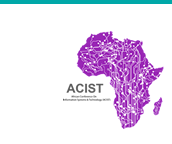Location
Addis Ababa University, Ethiopia
Start Date
8-2019 11:00 AM
End Date
August 2019
Description
With rising enthusiasm for Open Data (OD) globally, there has been an expanding requirement for research on the impact this movement has created. Ghana is consid-ered as one of the early Open Data adopters in Africa. The case of Ghana presents an interesting and a unique area of concentration due to the country’s long stand in de-mocracy. The practice of democracy, accountability and transparency has been the core of government development in Ghana since independence in 1957. The research pur-pose is to understand and examine the impact of Open Data from the context of Gha-na from the perspective of created public value. Existing studies in Open Data has focused on the supply-side. These studies have discussed issues relating to licensing, policies, power relationship between government stakeholders and the technological platforms of the phenomenon. Less is however, known of the impact Open Data on citizens and government of developing countries after about four years of embracing the initiative. The research question underlying this study is: What public value has Open Data created in Ghana? To answer this research question, the study adopts a post-positivist methodology and deductively adopts the public value framework as the theoretical lens. With reference to the public value framework the study posits that the major impact of open data in Ghana is related to intrinsic enhancements, steward-ship, quality of life, economic empowerment.With rising enthusiasm for Open Data (OD) globally, there has been an expanding requirement for research on the impact this movement has created. Ghana is consid-ered as one of the early Open Data adopters in Africa. The case of Ghana presents an interesting and a unique area of concentration due to the country’s long stand in de-mocracy. The practice of democracy, accountability and transparency has been the core of government development in Ghana since independence in 1957. The research pur-pose is to understand and examine the impact of Open Data from the context of Gha-na from the perspective of created public value. Existing studies in Open Data has focused on the supply-side. These studies have discussed issues relating to licensing, policies, power relationship between government stakeholders and the technological platforms of the phenomenon. Less is however, known of the impact Open Data on citizens and government of developing countries after about four years of embracing the initiative. The research question underlying this study is: What public value has Open Data created in Ghana? To answer this research question, the study adopts a post-positivist methodology and deductively adopts the public value framework as the theoretical lens. With reference to the public value framework the study posits that the major impact of open data in Ghana is related to intrinsic enhancements, steward-ship, quality of life, economic empowerment.
Assessment of the Public Value of Open Data in Ghana
Addis Ababa University, Ethiopia
With rising enthusiasm for Open Data (OD) globally, there has been an expanding requirement for research on the impact this movement has created. Ghana is consid-ered as one of the early Open Data adopters in Africa. The case of Ghana presents an interesting and a unique area of concentration due to the country’s long stand in de-mocracy. The practice of democracy, accountability and transparency has been the core of government development in Ghana since independence in 1957. The research pur-pose is to understand and examine the impact of Open Data from the context of Gha-na from the perspective of created public value. Existing studies in Open Data has focused on the supply-side. These studies have discussed issues relating to licensing, policies, power relationship between government stakeholders and the technological platforms of the phenomenon. Less is however, known of the impact Open Data on citizens and government of developing countries after about four years of embracing the initiative. The research question underlying this study is: What public value has Open Data created in Ghana? To answer this research question, the study adopts a post-positivist methodology and deductively adopts the public value framework as the theoretical lens. With reference to the public value framework the study posits that the major impact of open data in Ghana is related to intrinsic enhancements, steward-ship, quality of life, economic empowerment.With rising enthusiasm for Open Data (OD) globally, there has been an expanding requirement for research on the impact this movement has created. Ghana is consid-ered as one of the early Open Data adopters in Africa. The case of Ghana presents an interesting and a unique area of concentration due to the country’s long stand in de-mocracy. The practice of democracy, accountability and transparency has been the core of government development in Ghana since independence in 1957. The research pur-pose is to understand and examine the impact of Open Data from the context of Gha-na from the perspective of created public value. Existing studies in Open Data has focused on the supply-side. These studies have discussed issues relating to licensing, policies, power relationship between government stakeholders and the technological platforms of the phenomenon. Less is however, known of the impact Open Data on citizens and government of developing countries after about four years of embracing the initiative. The research question underlying this study is: What public value has Open Data created in Ghana? To answer this research question, the study adopts a post-positivist methodology and deductively adopts the public value framework as the theoretical lens. With reference to the public value framework the study posits that the major impact of open data in Ghana is related to intrinsic enhancements, steward-ship, quality of life, economic empowerment.




Comments
Paper revised to address the reviewer comments.